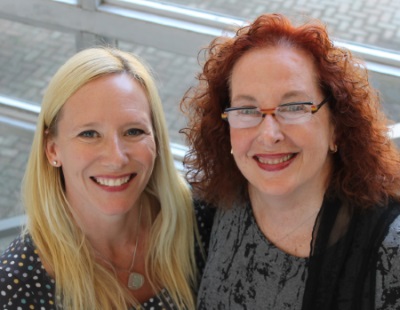Wayne State School of Social Work receives largest-ever federal grant, will spend nearly $1.8 million to design and evaluate youth dating and sexual violence prevention program

The Wayne State School of Social Work has received nearly $1.8 million dollars from the Centers for Disease Control and Prevention (CDC) to adapt, implement and evaluate an evidence-based program to prevent sexual and dating violence perpetration among youth. The funding represents the largest federal grant in the school's history.
Over the next four years, Associate Social Work Professor Poco Kernsmith and Assistant Social Work Professor for Research Joanne Smith-Darden will use the CDC funding to address sexual violence via an adapted evidence-based Youth Empowerment Solutions (YES) curriculum. The research team will introduce the adapted violence prevention curriculum in three Metro Detroit middle schools, and evaluate its efficacy in preventing sexual and dating violence among adolescents. Kernsmith and Smith-Darden will work with co-principal investigator Marc Zimmerman, Director of the University of Michigan Prevention Research Center and Professor of Health Behavior and Health Education at the University of Michigan School of Public Health, as well as partners from the University of Michigan, Department of Psychology and the Michigan Department of Community Health Rape Prevention and Education Program.
In adapting the YES curriculum, through which youth are empowered to reduce violence in their communities and to work with adults to support their efforts, Kernsmith and Smith-Darden will draw on data they obtained from another, ongoing CDC-funded study called SHARE. For the SHARE study, Kernsmith and Smith-Darden followed roughly 1,200 middle- and high school students from six Metro Detroit school districts. Students were surveyed over four years to identify risk and protective factors associated with healthy behaviors as well as behaviors such as stalking and physical, sexual and emotional abuse within the context of teen dating violence. Because school connectedness and parental involvement were among the protective factors associated with sexual and dating violence avoidance in their findings, the adapted curriculum "" called Youth Empowerment Solutions for Healthy Relationships: Engaging Youth to Prevent Sexual Violence (YES-HR) "" will involve student-led, school-based group projects with adults participating as a proxy parental presence.
Following an initial training year, YES-HR will be implemented with eighth grade students for two years at three schools from the original SHARE study. Eighth-grade students from three other SHARE study schools will serve as a control. Offered one day a week as part of the yearlong social studies curriculum, YES-HR will involve a combination of classroom activities on issues such as respectful relationships, appropriate use of technology, gender role norms, and leadership and bystander interventions that culminate in a student-led collaborative performance art event. Kernsmith and Smith-Darden will follow the two eighth grade classes until the close of the study to see if the program has a lasting positive impact. Approximately 1,300 students will receive the YES-HR curriculum over the course of the study and all comparison schools will be trained in YES-HR at the close of the fourth year for a total sample size of 2,600.
Smith-Darden acknowledges that the participating schools are devoting a significant amount of classroom time to the test curriculum, but says they recognize that preventing teen dating and sexual violence has far-reaching benefits.
"Youth who experience physical, emotional, and sexual violence are at higher risk of future victimization and aggression and of developing harmful behaviors such as poor academic performance, substance abuse, eating disorders, and suicide," she said. "Schools see a tremendous benefit in investing in a program that can help prevent this range of adverse outcomes."
Kernsmith noted that the YES-HR program helps advance three of the School of Social Work's core research priorities, specifically interpersonal violence, child welfare, and behavioral health, and will provide opportunities for students to engage in high-impact research. It also creates further opportunities for the school to assist the federal government.
"The CDC is interested in scalability," Kernsmith noted. "If this program is successful, the CDC may call on us for assistance implementing and evaluating this program in other regions of the country."